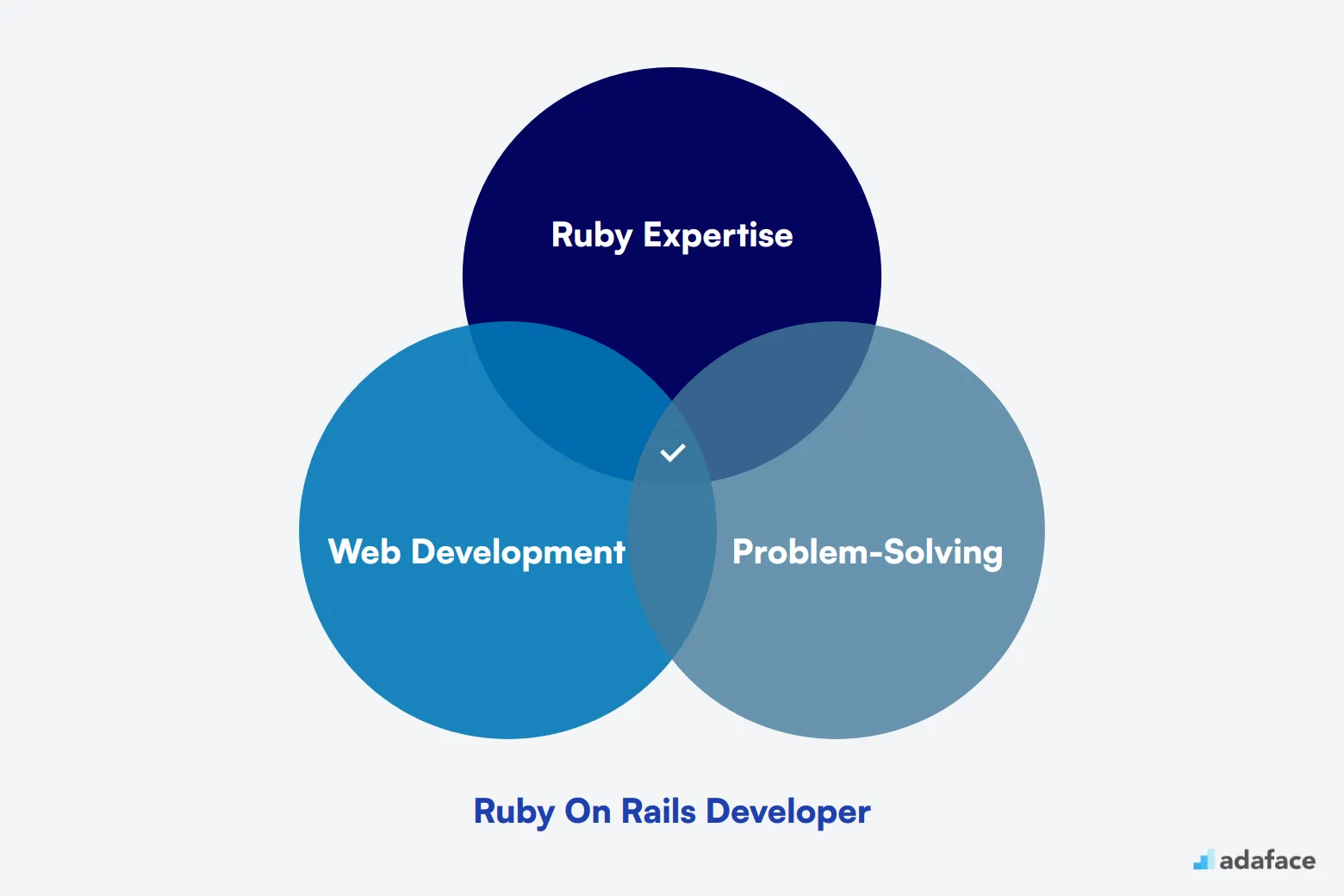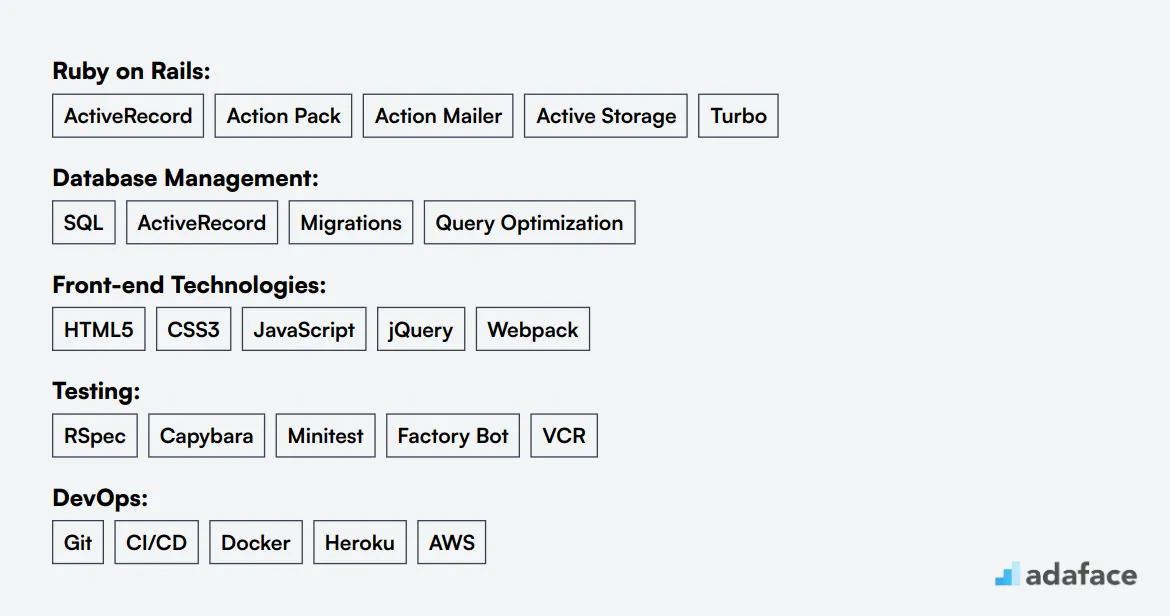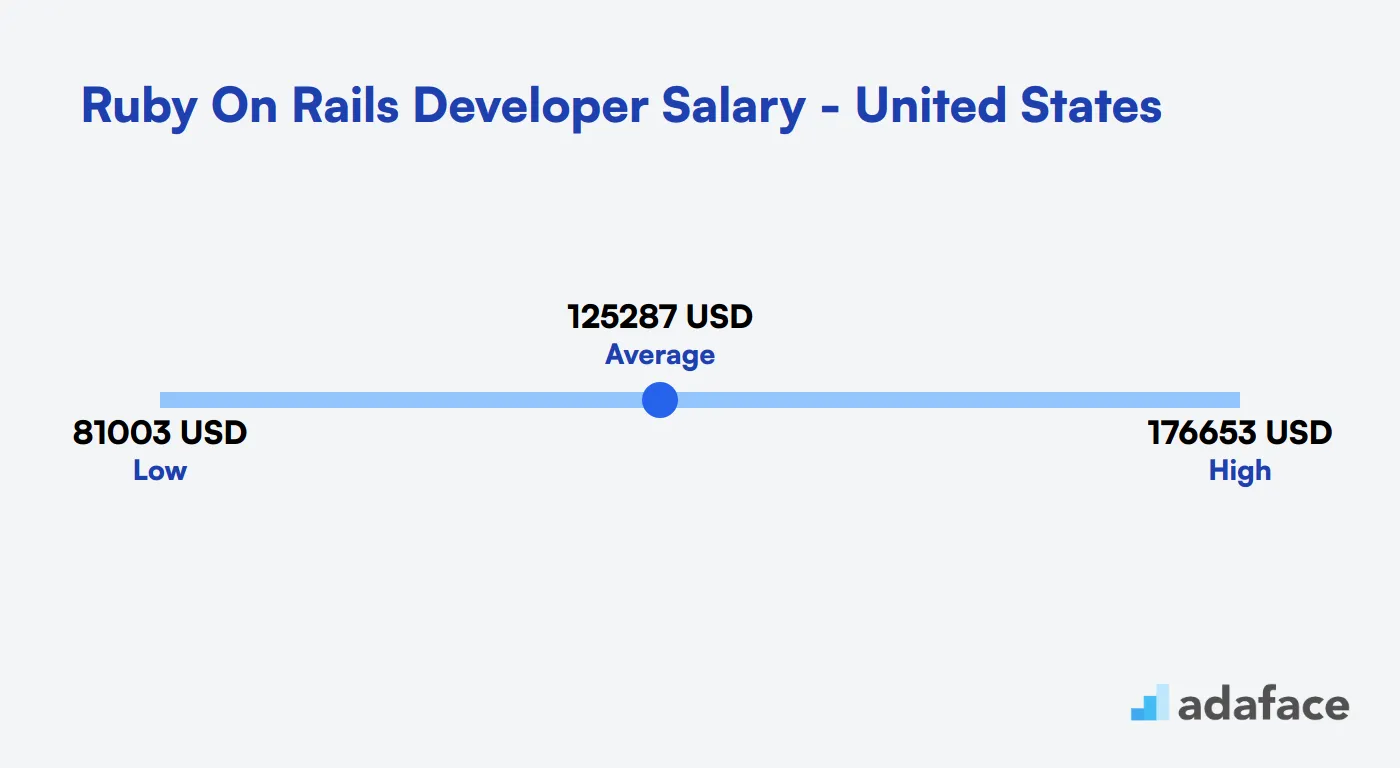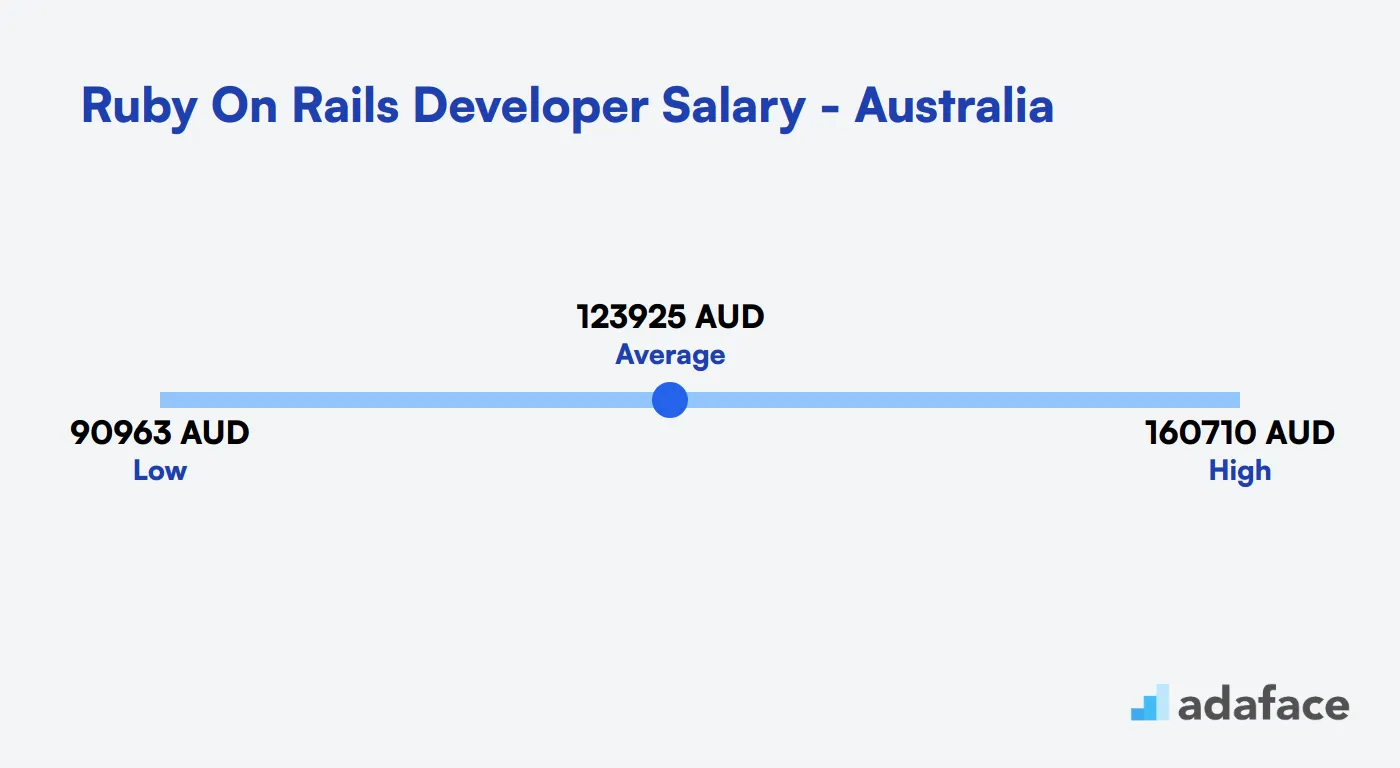Hiring a Ruby on Rails developer can significantly impact your company's web development projects, given the framework's popularity and efficiency in building scalable web applications. Companies often struggle with finding developers who not only have technical expertise but also align with their organizational culture and project goals. It's common to overlook the importance of soft skills and the ability to work collaboratively, which are just as important as technical skills in a developer for successful project execution.
This article will guide you through the process of hiring a Ruby on Rails developer, discussing the skills and qualifications to look for, how to write compelling job descriptions, where to source candidates, and the best practices for screening and interviewing applicants. For more insights on related hiring processes, check out our Ruby on Rails Online Test resource.
Table of contents
Why Hire a Ruby on Rails Developer?
Hiring a Ruby on Rails developer can significantly boost your web application development process. These experts specialize in crafting robust, scalable web applications using the Ruby on Rails framework, which is known for its speed and efficiency in development.
To determine if you need a Ruby on Rails developer, consider these scenarios:
- You're planning to build a complex web application quickly
- Your existing Rails application needs maintenance or upgrades
- You want to leverage Ruby on Rails' extensive library of gems for faster development
Before committing to a full-time hire, assess your project's scope and timeline. For short-term or smaller projects, you might consider working with a freelancer or consultant. For ongoing development or larger projects, bringing a Ruby on Rails developer on board full-time could be more beneficial.

What Does a Ruby On Rails Developer Do?
A Ruby On Rails Developer specializes in building web applications using the Ruby programming language and the Rails framework. They transform client requirements into functioning web solutions, focusing on the back-end components and integrating various technologies to ensure seamless performance.
Day-to-day tasks of a Ruby On Rails Developer include:
- Writing clean and maintainable code using Ruby and Ruby on Rails.
- Designing, building, and maintaining efficient web applications.
- Collaborating with front-end developers to integrate user-facing elements.
- Troubleshooting and debugging applications to ensure smooth user experience.
- Conducting performance tests and optimizing applications for speed and scalability.
For more on what skills are necessary for this role, explore our skills required for Ruby On Rails Developer guide.
Skills and qualifications to look for in a Ruby On Rails Developer
Creating a candidate profile for a Ruby on Rails Developer can be tricky, given the diverse range of skills required for different projects. It's important for recruiters to distinguish between what is truly necessary for your team versus what would be nice to have. A mismatch here can lead to hiring challenges and project delays.
To aid in this process, it's helpful to clearly define required skills and qualifications, such as proficiency in the Ruby programming language and experience with the Ruby on Rails framework. Meanwhile, preferred skills might include familiarity with database systems or front-end frameworks. Understanding these distinctions will make for a smoother hiring process.
For further insights, explore our Ruby on Rails developer salary guide to understand market expectations and set competitive offers.
| Required skills and qualifications | Preferred skills and qualifications |
|---|---|
| Proficiency in Ruby programming language | Experience with test-driven development (TDD) |
| Experience with Ruby on Rails framework | Familiarity with version control systems (e.g., Git) |
| Knowledge of MVC architecture | Knowledge of database systems (e.g., PostgreSQL, MySQL) |
| Familiarity with RESTful APIs | Experience with front-end frameworks (e.g., React, Vue.js) |
| Solid understanding of HTML, CSS, and JavaScript | Understanding of Agile methodologies |
How to write a Ruby On Rails Developer job description?
Once you have a clear candidate profile, the next step is crafting a job description that attracts the right Ruby On Rails developer. A well-structured job description can make all the difference in your hiring process.
- Highlight key responsibilities and impact: Clearly outline the specific responsibilities of the Ruby On Rails developer, such as developing applications, and collaborating with cross-functional teams. This gives candidates a clear understanding of how their work will contribute to your projects and objectives.
- Balance technical skills and soft skills: While it's important to list technical requirements like experience with Ruby, Rails, and database management, also consider highlighting soft skills such as teamwork and communication. A well-rounded developer is often more valuable than one with only technical prowess.
- Showcase your company and role's unique selling points: What makes your organization stand out? Whether it's innovative projects, a dynamic work culture, or opportunities for professional growth, sharing these aspects can attract top talent. For a more thorough understanding of expectations, refer to a detailed job description.
Top Platforms to Source Ruby on Rails Developers
Now that you have a well-crafted job description, it's time to list it on job platforms to attract potential candidates. The right platform can significantly impact the quality and quantity of applications you receive. Let's explore some top sites where you can find skilled Ruby on Rails developers.
Indeed
Ideal for hiring full-time Ruby on Rails developers due to its vast reach and comprehensive job listing tools.

Great for connecting with Ruby on Rails professionals and utilizing professional networks for potential hires.

Upwork
Useful for hiring freelance Ruby on Rails developers on a project basis with flexible terms.

Other notable platforms include Remote OK for remote hiring, Stack Overflow Jobs for tech-specific roles, and AngelList for startups. Hired specializes in full-time tech positions, while Freelancer and Toptal cater to freelance needs. For open-source enthusiasts, GitHub Jobs can be an excellent resource. Each platform offers unique advantages, so consider your specific hiring needs when choosing where to post your Ruby on Rails developer job listing.
How to Screen Ruby On Rails Developer Resumes?
When looking to hire a Ruby on Rails developer, resume screening allows you to manage the volume of applications and focus on the most promising candidates. This process ensures that you only invest time in interviews with candidates who meet your criteria.

Start by identifying key skills and qualifications relevant to the role, such as proficiency in Ruby, experience with the Rails framework, and understanding of RESTful APIs. As you scan through resumes, look for these keywords along with additional skills like test-driven development and database experience. This step helps you quickly eliminate candidates who do not match your baseline requirements.
For a more streamlined approach, consider using AI tools like language models to screen resumes. You can provide AI with a prompt listing the keywords you're interested in, and it will help you filter candidates. This method not only saves time but increases accuracy by reducing human bias.
Here's an example prompt to use with AI tools:
TASK: Screen resumes to match job description for Ruby on Rails developer role
INPUT: Resumes
OUTPUT: For each resume, provide the following information:
- Email id
- Name
- Matching keywords
- Score (out of 10 based on keywords matched)
- Recommendation (detailed recommendation of whether to shortlist this candidate or not)
- Shortlist (Yes, No or Maybe)
RULES:
- If you are unsure about a candidate's fit, put the candidate as Maybe instead of No
- Keep recommendations crisp and to the point.
KEYWORDS DATA:
- Ruby (ActiveRecord, MVC, APIs)
- Frameworks (Rails, Turbo)
- Database (SQL, PostgreSQL, MySQL)
Recommended Skills Tests to Assess Ruby on Rails Developers
When hiring a Ruby on Rails developer, it's important to evaluate their technical skills to ensure they can meet your project needs. Skills tests are an effective way to measure a candidate's proficiency and make informed hiring decisions. Here are our recommended tests for assessing Ruby on Rails developers:
Ruby on Rails Test: Use the Ruby on Rails Test to evaluate a candidate's knowledge of the framework's components and their ability to implement web applications smoothly.
Ruby Online Test: The Ruby Online Test assesses a candidate's proficiency in the Ruby programming language, ensuring they have the skills necessary for backend development.
SQL Online Test: As database management is often key in web development, the SQL Online Test can help determine a candidate’s ability to work with databases efficiently.
Git Test: The Git Test is essential for evaluating a candidate's familiarity with version control, an important aspect of modern software development.
JavaScript Online Test: A JavaScript Online Test is recommended to ensure a candidate can handle frontend tasks and integrate them with Rails applications seamlessly.
How to Structure the Interview Stage for Hiring Ruby On Rails Developers
After candidates successfully pass the skills tests, the next step is to conduct technical interviews to evaluate their hard skills. This stage is crucial because while skills tests help filter out unfit candidates, they may not always identify the best fit for your Ruby On Rails developer role. In these interviews, you can delve deeper into their practical knowledge and problem-solving abilities with tailored questions.
Here are some interview questions you might consider asking a potential Ruby On Rails developer:
- What are the differences between a symbol and a string in Ruby, and when would you use each? This question assesses their foundational understanding of Ruby.
- Can you explain how RESTful architecture works within a Rails application? This evaluates their grasp of web services and architecture. Learn about web services interview questions.
- What are some common performance bottlenecks in Rails applications, and how would you address them? This helps identify their problem-solving skills.
- How do you implement authentication in a Rails app? Testing their knowledge in security practices and user management.
- Have you ever integrated a third-party API in a Rails application? Describe the process. This shows their ability to work with external services and APIs.
Cost of Hiring a Ruby On Rails Developer
The cost of hiring a Ruby On Rails developer varies significantly based on location and experience. In the United States, salaries range from $81,003 to $176,653, with an average of $125,287. Australian developers earn between AUD 83,409 and AUD 186,183, depending on the city.
Factors influencing the cost include the developer's skill level, project complexity, and employment type (full-time, part-time, or freelance). Companies should consider these factors when budgeting for a Ruby On Rails developer.
Ruby On Rails Developer Salary United States
In the United States, the average salary for a Ruby On Rails Developer is approximately $125,287. Salaries can range from $81,003 on the lower end, up to $176,653 for highly experienced developers. The median salary sits around $119,622, offering a competitive compensation for skilled professionals in this field.

Ruby On Rails Developer Salary Australia
In Australia, Ruby On Rails developers can expect varying salaries depending on the city. In Perth, salaries range from AUD 133,519 to AUD 186,183, with a median of AUD 157,667. Sydney offers a range from AUD 100,829 to AUD 166,937, and a median salary of AUD 129,738. Brisbane's range is AUD 93,112 to AUD 161,204, with a median of AUD 122,516. Melbourne salaries fall between AUD 83,409 and AUD 154,832, with a median of AUD 113,642. Nationally, the average salary is around AUD 123,926.

What's the difference between a Junior Ruby on Rails Developer and a Senior Ruby on Rails Developer?
Distinguishing between junior and senior Ruby on Rails developers can be challenging, especially when evaluating candidates. The key lies in understanding their experience levels and the depth of their technical skills.
Junior Ruby on Rails developers typically have 0-2 years of experience. They possess basic knowledge of Ruby, Rails, HTML, CSS, and JavaScript. Their responsibilities often include working on individual tasks and bug fixes. They write basic unit tests and are usually mentored by more experienced team members.
Senior Ruby on Rails developers, on the other hand, boast 5+ years of experience. They have advanced skills in Ruby, Rails, JavaScript frameworks, and DevOps. These developers take on architecture design and team leadership roles. They establish coding best practices, implement comprehensive testing strategies, and mentor junior developers.
The gap in problem-solving abilities is significant. While juniors tackle defined problems, seniors address complex, undefined issues. Database skills also differ, with juniors handling basic SQL queries and seniors excelling in advanced database optimization and NoSQL technologies.
| Junior Ruby on Rails Developer | Senior Ruby on Rails Developer | |
|---|---|---|
| Years of Experience | 0-2 years | 5+ years |
| Technical Skills | Basic Ruby, Rails, HTML, CSS, JavaScript | Advanced Ruby, Rails, JavaScript frameworks, DevOps |
| Project Responsibility | Individual tasks, bug fixes | Architecture design, team leadership |
| Code Quality | Follows conventions | Establishes best practices |
| Problem-Solving | Solves defined problems | Tackles complex, undefined issues |
| Database Skills | Basic SQL queries | Advanced database optimization, NoSQL |
| Testing | Writes basic unit tests | Implements comprehensive testing strategies |
| Mentoring | Receives mentorship | Mentors junior developers |
Hire the Best Ruby On Rails Developers
Throughout this guide, we've discussed the reasons to hire a Ruby on Rails developer, the key roles they play, the skills and qualifications to look for, and how to effectively structure the hiring process. We've also explored the platforms you can use to source candidates and the differences between junior and senior developers.
A key takeaway is the importance of crafting precise job descriptions and leveraging skill assessments to ensure accurate hiring. Using the right tools can make all the difference in identifying the best-fit candidates. Consider using tailored assessments like the Ruby On Rails Online Test to assess the technical skills efficiently.
Ruby on Rails Online Test
FAQs
Key skills include proficiency in Ruby programming, experience with the Rails framework, understanding of front-end technologies like HTML, CSS, and JavaScript, and familiarity with databases such as SQL.
An effective job description should clearly outline the technical skills, experience level, and responsibilities associated with the role. It should also highlight your company’s culture and the specific projects the developer will work on. Check out our Ruby on Rails Developer Job Description for a template.
You can find Ruby on Rails developers on platforms like LinkedIn, GitHub, Stack Overflow, and specialized job boards such as RubyNow and RailsConf. Networking at tech meetups and conferences can also be beneficial.
Include technical assessments such as coding tests, portfolio reviews, and problem-solving exercises. It's also important to evaluate communication skills and cultural fit through interviews.
Ask about their past projects and specific contributions, request code samples or portfolio links, and utilize coding assessments to gauge practical skills. Behavioral questions can also uncover their problem-solving and teamwork abilities.
Junior developers typically have less experience and require more guidance, focusing on learning and executing tasks. Senior developers possess extensive experience, can handle complex tasks independently, mentor juniors, and contribute to strategic decision-making.

40 min skill tests.
No trick questions.
Accurate shortlisting.
We make it easy for you to find the best candidates in your pipeline with a 40 min skills test.
Try for freeRelated posts
Free resources



